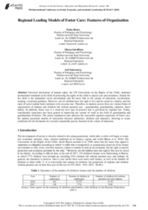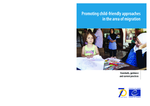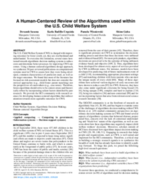Unaccompanied minors and court mandated institutional care: A national registry-based study in Sweden
The research question examined in this study is whether unaccompanied minors (UAMs) in compulsory care receive more restrictive actions by compulsory care staff compared to their counterparts who are non-UAMs.



